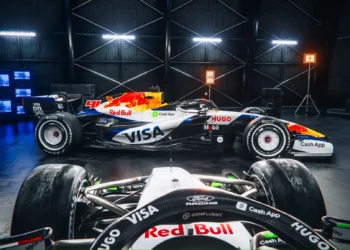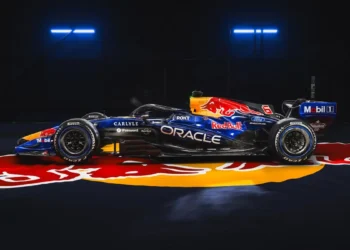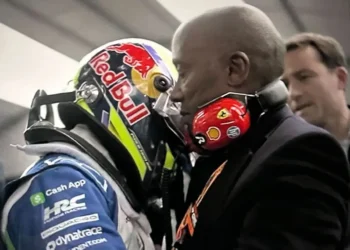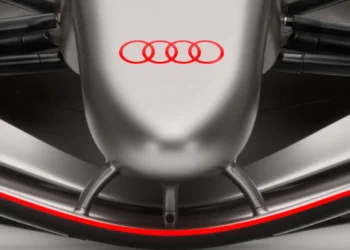Lando Norris, McLaren driver, achieved an impressive second place in the Emilia Romagna Formula 1 Grand Prix. McLaren team boss Andrea Stella praised Norris for his adaptive race management, which almost resulted in a victory. Norris qualified just behind Max Verstappen, but struggled to keep up with the Red Bull driver in the early stages, falling eight seconds behind. However, Norris made an impressive comeback in the final stages of the race, closing the gap to Verstappen. In the end, Norris finished just seven tenths of a second behind Verstappen, stating that he needed a few more laps to overtake him. Stella praised Norris for recognizing the issues that affected his earlier pace and adjusting his approach accordingly.
Stella described the race as interesting due to the narrow tire operating window. The combination of driver skills, track characteristics, and tire conditions created different competitive dynamics. In the first stint, Verstappen seemed to have control, and Norris had to keep an eye on the rearview mirrors while facing pressure from Carlos Sainz. In the second stint, Norris managed his tires carefully from the start, knowing it would be challenging to finish the race on the hard compound tires. Stella noted that those who used hard tires in the first stint, like Sergio Perez, did not perform well. Therefore, the race became tactical, and Norris did an excellent job managing his tires, allowing him to have a strong finish.
Norris admitted that McLaren had difficulties with the degradation of the rear tires due to the car’s setup for expected cooler conditions. Stella explained that tire temperature played a crucial role in the car’s performance and Norris’s ability to chase Verstappen. If the tires overheated, there would be a significant drop in performance. Stella believed that the high tire temperature at the start of the race caused McLaren to lose ground to Verstappen. However, in the second stint, Norris controlled the pace while the tires were still relatively new, ensuring they did not overheat and maintaining decent performance until the end.









